Family Affair, Story Untold
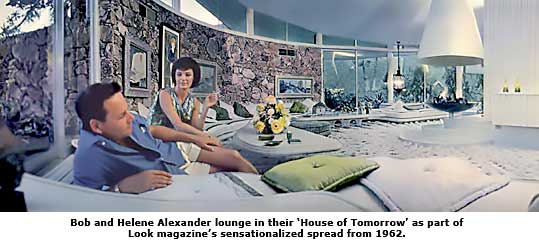
Look magazine had some fun with Bob and Helene Alexander in 1962. Bob, owner of the Alexander Construction Company with his father George, had just moved into the new Palm Springs family home, a bold composition of floating hexagons and circles designed for them by the Alexander's architect, William Krisel.
Bob and Helene were told that Look wanted to look at their marvelous new home, then called the 'House of Tomorrow' but better known today, especially by the thousands of tourists that visit it each year, as the 'Elvis Honeymoon Hideaway.'
But Look was less interested in real estate than in the lifestyles of the rich. In five pages of photos, Look showed bathing suits, cigarettes, circular cushion-filled rooms ideal for lolling, Helene crossing the home's artificial brook with Mrs. Zeppo Marx, and Bob with his Jaguar.
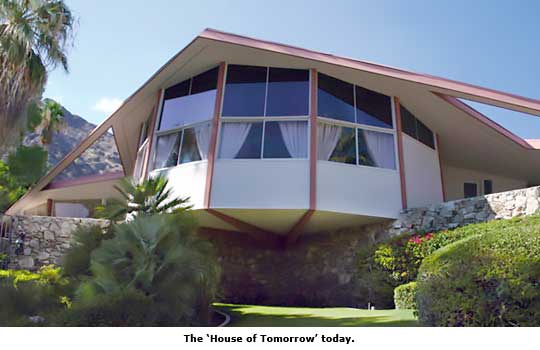
The Alexanders, who came to the desert in the mid-1950s, were already legendary figures. They were the first major builders to construct tract homes in Palm Springs -- and the fact that they were beautifully designed, modern homes made their success even more striking. The Alexanders were also the new owners of the fabled Racquet Club, known for its tennis courts, a clubhouse that hosted Palm Springs' best parties, and its movie star founders and clientele.
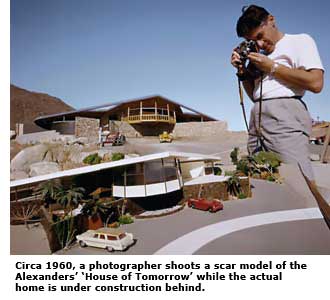
The Alexanders' story reveals much about the history of Palm Springs and about the power of serendipity. How they came to collaborate with a committed modernist architect, and how they came to Palm Springs, came about largely by chance. How the Alexanders succeeded, however, and why they risked building modern tract homes in the desert in the first place, had more to do with their character, hard work, and daring.
But none of that interested Look. About Bob, the magazine revealed a penchant for horseback riding and water-skiing the Salton Sea. About Palm Springs' endless round of "parties, parties, parties," Bob provided this quote: "It is," he says, "undulating."
"At home, she dawdles daily in two dollar's worth of bubble bath," the magazine said of Helene, noting that she spent afternoons playing tennis at the Racquet Club. "It firms her legs."
"I never feel like I'm awake without mascara," Helene confessed.
Not surprisingly, many people believed the portrait, and came to think of the couple as all play and no work.
Three years after the article ran, Bob and Helene and Bob's parents, George and Jimmie Alexander, died in a private plane crash a few miles from the home.
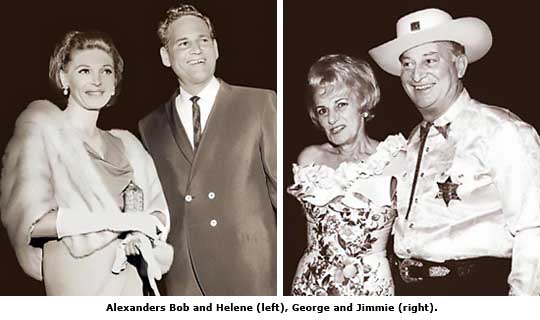
Not surprisingly, after the Look episode, Bob and Helene "became very shy of publicity," says Krisel, who was also Bob's close friend. So, for people who didn't know them, the portrait stuck. And more than 40 years after their deaths, although the Alexanders are far from forgotten in the desert, few remember what they were really like. In Palm Springs, the word 'Alexander' has come to mean a kind of house -- not the name of an actual family.
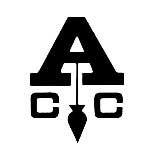
A few years ago Krisel spoke with Bob and Helene's daughter Jill, who was 13 when they died and the only member of the immediate family not on the plane. She asked Krisel about her parents. He told her "that Bob was a serious builder, and did pay attention to detail," Krisel says. Jill had been told by some that her father was more interested in leisure than in business. I said, 'Absolutely not. Bob was the Alexander Construction Company 100 percent.'"
"I was so pleased to hear it," says Jill Kitnick, who was raised by her uncle and aunt. She had heard tall tales about her parents' lifestyles, she says. "I was probably somewhat skewed by that magazine article as well." The Bob Alexander that Krisel remembers was his exact contemporary and a member of the same social circle in Brentwood. Bob was quiet and serious. "He wasn't a glad-hander," Krisel says. "He took time to think about things. He didn't make quick decisions."




